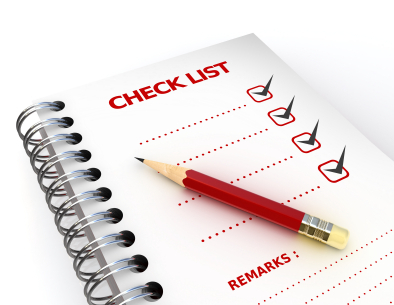 Purchasing an existing business begins by determining what the right business is for you. You can work with a business broker or you can do it on your own. Before agreeing to any purchase use this checklist to evaluate whether this is a good buying decision or not.
Purchasing an existing business begins by determining what the right business is for you. You can work with a business broker or you can do it on your own. Before agreeing to any purchase use this checklist to evaluate whether this is a good buying decision or not.
1. Inventory – This is all the products for resale. You need to know inventory on hand, and what was on hand at the end of the last fiscal year, and the one before that. Before completing any deal, you should always have an inventory appraisal done and have a dollar value assigned.
2. Furniture, equipment, building – Have the seller provide an asset list including the value of these assets. Find out what has been invested in maintenance and leasehold improvements.
3. Incorporation – If the company is incorporated, find out what state it is registered in and whether it operates as a foreign corporation within that state.
4. Financial statements and tax returns previous 5 years – Evaluate these records and compare them to the tax returns that were filed. Compare operating ratios and sales ratios.
5. Sales Records – Evaluate all sales records on a monthly basis for the previous 3 years. This will give you a good indication of current activity and an understanding of any cycles.
6. List of all liabilities – It’s a good idea to have your attorney evaluate these liabilities too to understand if there are any legal ramifications. Learn whether assets are used as collateral against those liabilities.
7. Examine accounts receivables and accounts payables – Break down both A/R and A/P by 30, 60, and 90 days. Watch for accounts receivables that are more than 60 days and examine the creditworthiness of those receivables. With accounts payables you need to determine how well the cash flow is.
8. Marketing strategies – Look at how customers are brought in, are discounts used, do they advertise aggressively, etc. Get copies of the sales literature used, as well as advertising campaigns. Look at the budgets here.
9. Get an employee list and an organization chart – Employees can be assets especially if they are key personnel. You should also evaluate the organization chart so that you can see where resource and wages go. Examine the employee contracts; look at benefit packages, vacation policies, and all other costs associated with staffing the business.
10. Business reputation – Examine how the business is views by current customers and suppliers. This is very important since the business reputation can be an asset or a liability.
Never lose potential sales using Apptivo’s Opportunities App
Once you have gone through the checklist and have answers to these questions, you can determine what fair market value is and make your offer.


